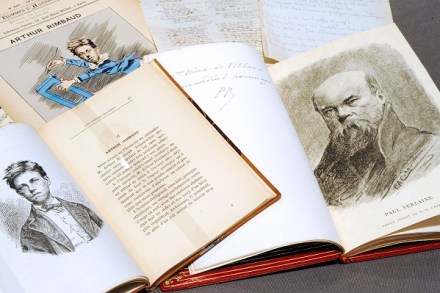Murderous mullah games
Montesquieu observed that popular governments are always more vindictive than monarchies. So it proved in Iran in 1979, where the demise of a 2,000-year-old monarchical tradition made most ‘Arab spring’ revolutions seem like child’s play. More than 30 years on, the descent of Ayatollah Khomeini from a jumbo jet, wearing an American bullet-proof vest, also remains arguably more significant. James Buchan concludes that Osama bin Laden was the extreme Sunni response to Khomeini’s clerical dictatorship; and without Khomeini, the Shias’ battle for survival would not have played out across the Middle East as violently as it has, including in Syria today. By the end of 1982, more than 5,000 young















